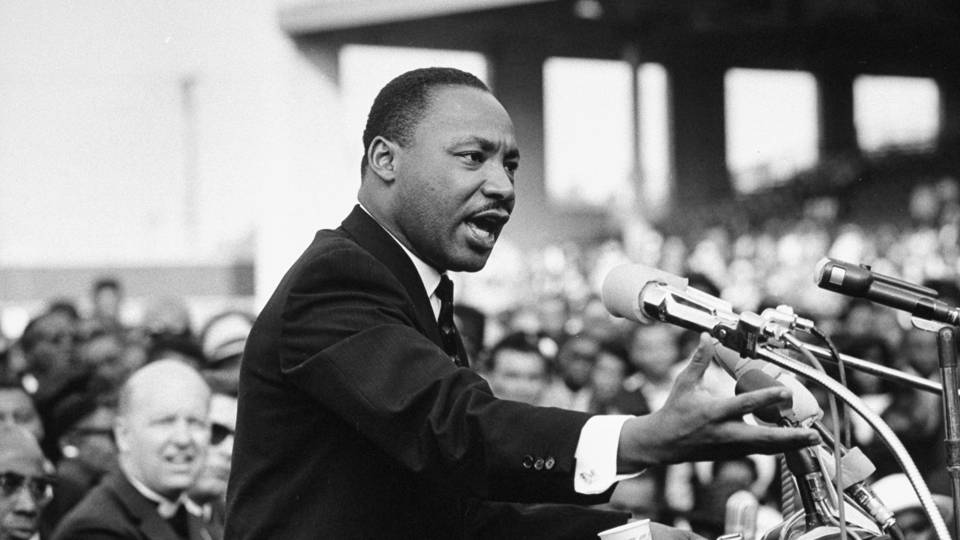“I may not get there with you”

Martin Luther King Jr. had many enemies during his time, but he never stopped having a positive spirit. As we remember the 50th anniversary of his assassination, we also remember one of his appeals of “doing something good for others”.
Martin Luther King Jr. probably had a premonition of dying. A day before he was assassinated he predicted that he might be taken out by “some of our sick white brothers.” Later in the same speech he added, “But it really doesn’t matter with me now…I’ve been to the mountaintop …. Like anybody, I would like to live a long life. Longevity has its place…. I just want to do God’s will. And He’s allowed me to go up to the mountain. And I’ve looked over, and I’ve s-e-e-e-e-n the Promised Land”. [1]
Whether at the Montgomery Bus Boycott, or Birmingham, or the March on Washington, or at the March on Selma, King’s work put him on a collision course with several ideological groups. [2]
More than most people, he learned early on that there was no easy road to freedom. In short, King lived on the edge of danger. Despite repeated arrests, King never compromised his core principles of justice, equality, and respect for all. He was subjected to threats, and occasionally he spoke about his own mortality noting he preferred to be remembered neither for his university degrees nor the Nobel Peace Prize but as someone who devoted his life to service for others. And that he literally did.
King’s activism forced America to re-examine its deeply entrenched culture of racism, bigotry, and classicism. Within a decade of his civil rights work he scored significant victories including the civil rights and voting rights acts. He summoned America to more fully implement its founding creed of “All men [women] are created equal.” And his message had global implications. He was present at Ghana’s independence celebration, was in Nigeria at Nnamdi Azikiwe’s invitation, and frequently referenced South Africa in his speeches especially after the apartheid government denied him a visa to visit that country. [3]
At a time when the global South region was oppressed by ruthless colonial systems and poverty, King’s words resonated with the local people, many of who formed the core of Frantz Fanon’s Wretched of the Earth. [4]
In Oslo, Norway, King accepted the Nobel Peace Prize on behalf of his struggle for the “reign of freedom and the rule of justice”. [5]
But King’s movement was not without challenges. As he entered the final decade of his life, he was awakened to a fact that racism and poverty were both sides of the same coin and must be addressed with equal intensity. A failed protest march in Chicago, Illinois reinforced that prompting more radical elements of the movement to increasingly ridicule his non-violent tactic. Many whites who supported efforts to desegregate lunch counters became leading opponents of King’s call for “economic justice.” The more he spoke of the urgency to “wipe out the triple interlocking evils of racism, exploitation, and militarism,” the louder the voices of his dissent grew.
And increasingly King hit back. Most Americans, he stated, were “unconscious racists,” and he proceeded to put in place plans to dramatise national attention on poverty through a Poor People’s March on Washington DC. It was in the middle of the organisation of this new campaign, and against the wishes of some of his close advisers, that he went to Memphis, Tennessee to support the sanitation workers strike. His action was consistent with the overarching anti-poverty campaign. But in Memphis, his life would be cut-short by an assassin’s bullet.
The person assassinated in Memphis was a global citizen. The bullet did not silence King’s ideas, words, and global impact. In one country after another streets, schools, and national emblems were named in his honour. When Nelson Mandela addressed a joint session of the US Congress he invoked King’s words to describe the end of South Africa’s apartheid: “Free at last, free at last, thank God Almighty we are free at last”. [6]
King had charisma, charm, empathy, and his life exemplified courage, determination, and commitment. Despite his position, he valued all his supporters irrespective of class. He was among America’s and the world’s finest. His grassroots activism, grounded in his intellectual work and Southern Baptist religious tradition, showed us that education can and should be used to improve the lives of the “forgotten” people.
His grace combined with his achievements showed us that leadership is not a publicity contest. He did not turn to opinion polls to decide his next move. He had core values and stayed with them to the very end. His coalition consisted of people from all races, sexual orientation, national origin, and gender. He would have scorned at the deep divisions and provincialism, which have become a way of life in today’s American society. On this 50th anniversary of King’s assassination we must rededicate ourselves, even for a moment, to one of King’s appeals: “Do something for others.”
* Julius A. Amin is Professor and Alumni Chair in Humanities, Department of History, University of Dayton, Ohio, United States of America.
Endnotes
[1] https://www.amazon.com/King-Pilgrimage-Mountaintop-Harvard-Sitkoff/dp/0809063492/ref=sr_1_1?ie=UTF8&qid=1521582754&sr=8-1&keywords=harvard+sitkoff%2C+king+pilgrimage+to+the+mountaintop accessed on 21 March 2018
[2] https://www.amazon.com/Protest-Selma-Martin-Luther-Voting/dp/0300024983/ref=sr_1_5?ie=UTF8&qid=1521582886&sr=8-5&keywords=david+garrow accessed on 21 March 2018
[3] https://www.nbclosangeles.com/news/national-international/MLK-and-Nelson-Mandela-Two-Men-Fighting-for-Peace-I-Have-a-Dream-Speech-220462741.html accessed on 21 March 2018
[4] https://www.amazon.com/Wretched-Earth-Frantz-Fanon/dp/0802141323/ref=sr_1_1?s=books&ie=UTF8&qid=1521583356&sr=1-1&keywords=frantz+fanon accessed on 21 March 2018
[5] https://www.nobelprize.org/nobel_prizes/peace/laureates/1964/king-acceptance_en.html accessed on 21 March 2018
[6] http://newsinfo.inquirer.net/470841/free-at-last-mandela-said-quoting-king accessed on 21 March 2018
